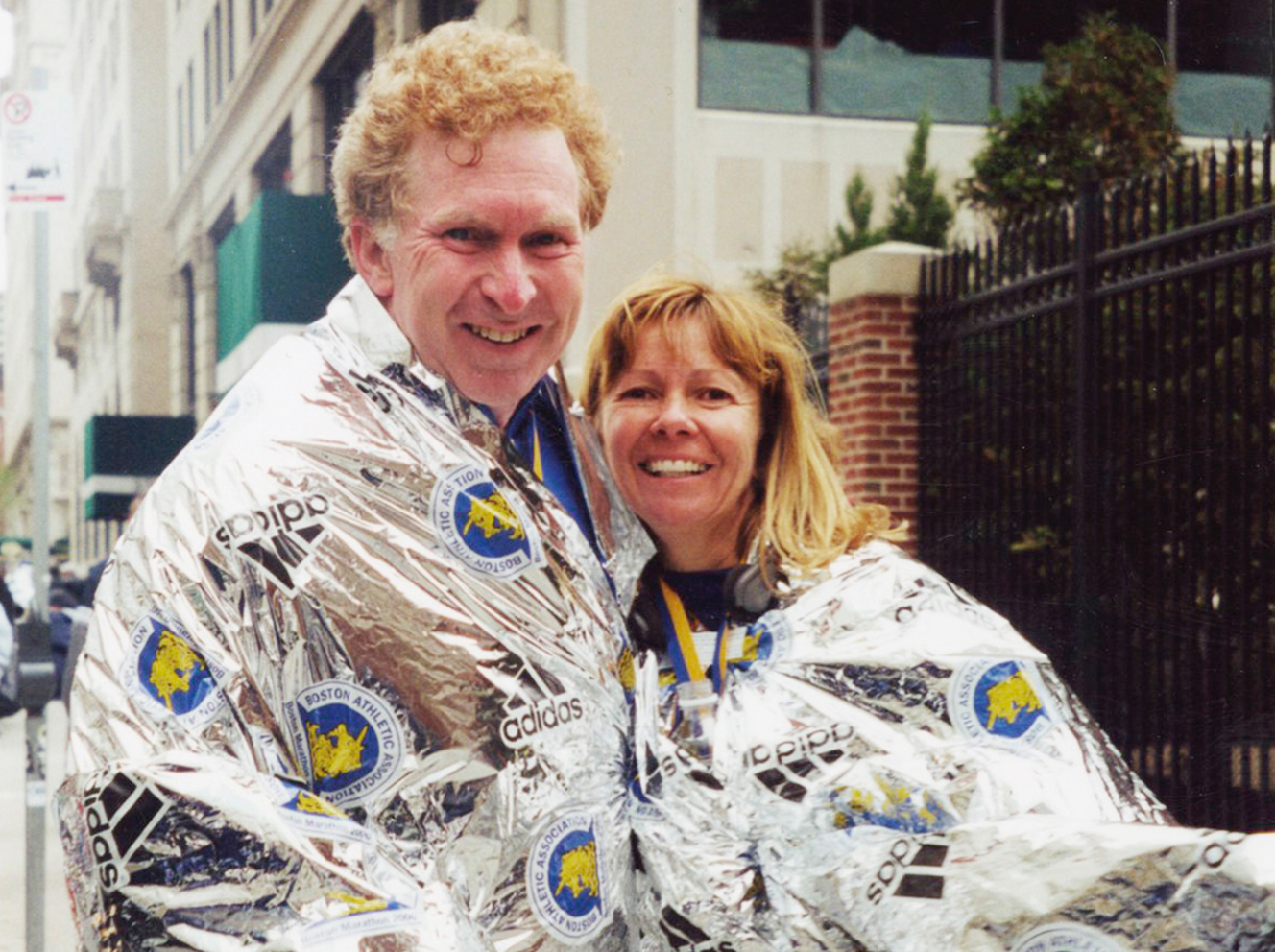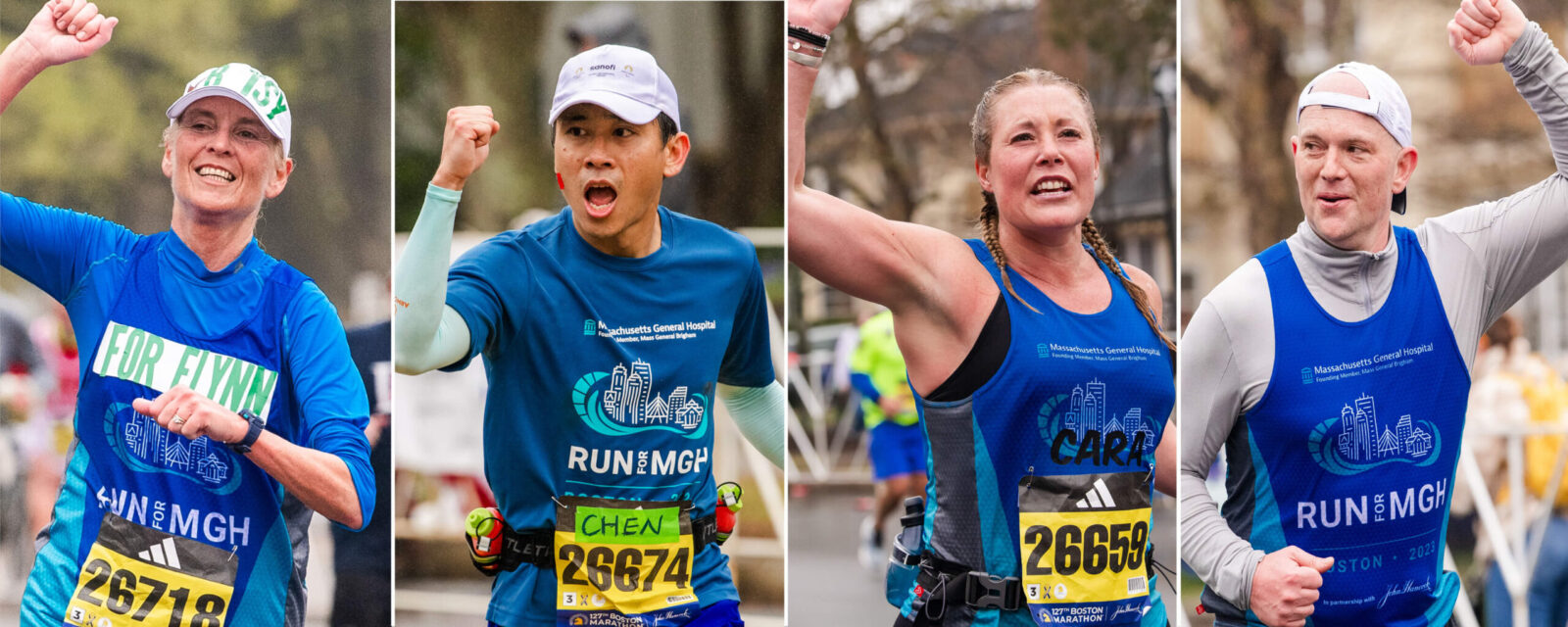Susan Ragon embarked on her marathon journey at the 1993 Boston Marathon®, never realizing the impact it would have on her life. Now, at the age of 73, she’s gearing up for her 25th Boston Marathon. Over the past three decades, Susan has completed an impressive 48 marathons, spanning all seven continents. Notably, in 2019, she made history and entered the Guinness Book of World Records by becoming the oldest woman to finish the Antarctic Marathon.
Susan’s story is one of perseverance and adventure, showcasing her relentless pursuit of challenges. Her accomplishments serve as inspiration for runners of all ages, reminding us that determination knows no bounds. As she prepares for another marathon, Susan continues to defy expectations and exemplify the unwavering spirit of endurance athletics.
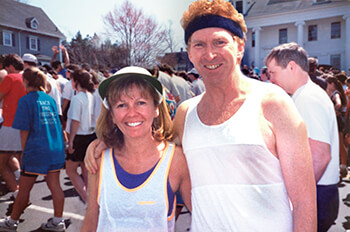
“Susan’s approach to running, and, I think, to life in general, is that you’re only done if you think you’re done,” says John Mortimer, Susan’s longtime running coach and the owner of Millennium Running. “She is as dedicated as you can be, and she prioritizes the things she needs to do to be successful. I was a professional, competitive runner in my younger days, but it was Susan that showed me that running can be a lifelong pursuit.”
We asked Susan to share some of what she’s learned in her quest to run 50 marathons.
1. Listen to your body
“I ran my first 15 marathons without realizing I had a heart condition — a hole in the interior wall, the size of a quarter, which went undetected until my fifties. I didn’t notice it most of the time, except when running uphill, where I felt like I hit a wall. Friends noted my heavy breathing, but I shrugged it off. Despite the condition, I was determined to keep going. At 57, I underwent open heart surgery at Massachusetts General Hospital. Nine months later, much to the dismay of my cardiologist, Ignacio Inglessis-Azuaje, MD, who advised me to “hang up my shoes,” I tackled the Dublin Marathon where I set a personal record, crossing the finish line in under four hours. Remarkably, Dr. Inglessis now stands beside me as a fellow marathoner, having joined my team and even completed an Ironman. The surgery proved to be transformative for my running. My journey underscores the importance of thorough physical examinations before embarking on a marathon, as well as the necessity of listening to one’s body during training.”
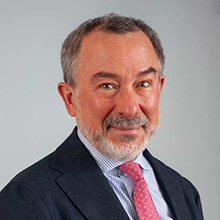
2. Consistency is key
“I firmly believe in the saying, ‘never try anything new on race day.’ This applies to everything, from my shoes to my pre-race meal. I make sure my shoes are broken in but still in good shape, ensuring they fit well and won’t cause discomfort. Before race day, I do a few short runs or one long run in them to double-check. For breakfast, I stick with oatmeal as it’s reliable and easy on the stomach. I avoid dairy because it takes too long to digest, and I also steer clear of salty foods.”
3. Get in your miles (and cross-training)
“In marathon training, mileage is key, particularly the long runs. I learned this the hard way during my first marathon, where my longest run had only been 15 miles; this left me sore for a week afterward. While it’s possible to finish a marathon with less training, putting in more miles beforehand, especially for beginners or older runners, significantly improves your experience. Most training plans max out at a 20-mile run, leaving the final six miles challenging no matter what. Long runs help you mentally break down the course into manageable segments and give you the confidence to tackle those tough final miles.”
And don’t forget the importance of cross-training! After running several marathons and aiming for a sub-4-hour finish time, I started noticing recurring injuries stemming from the overuse of specific muscle groups. Following advice from my doctor and physical therapist, I began incorporating biking, swimming, yoga and gym workouts into my weekly routine. While cross-training might not directly translate to increased speed, it definitely makes you stronger and less prone to injuries. And treating yourself to a weekly massage doesn’t hurt either!”
4. Sometimes, the accomplishment is finishing
“In some races, aiming for a personal best is the goal, while in others, just reaching the finish line is the achievement. I always start a race with the intention of giving it my all, knowing there’s a chance I might not finish. So far, I’ve completed every marathon I’ve started, although they haven’t all been easy. During the Sydney Marathon, I faced severe stomach pain and had to stop at the emergency tent, likely due to dehydration. Despite the setback, I managed to push through and finish the race. I’ve learned that with determination and perseverance, we can overcome challenges and reach our goals.”
5. Running is a challenge, but can be a comfort
“Life is filled with challenges, but running has been my anchor during some of the toughest times. Whenever I face obstacles, having a marathon to focus on keeps me moving forward. In 2018, I was diagnosed with breast cancer, and it was terrifying. But I had always dreamed of running a marathon in Antarctica, so I made it my goal. Throughout my treatment, I focused on that race, determined to make it happen. Despite surgeries, chemotherapy and radiation, I kept pushing forward. And once my treatment was over, I fulfilled my dream of running that marathon, feeling a sense of completeness restored.
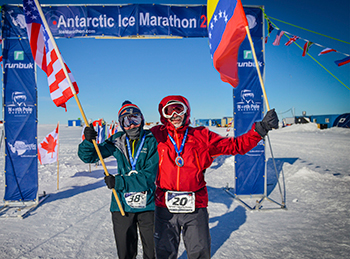
Another fulfilling aspect of marathon running for me is the opportunity to run for charity. While I usually qualify for marathons, I choose to run in support of causes that matter to me, like Mass General. My husband Terry and I are passionate about giving back, and we’ve dedicated a significant portion of our philanthropy to supporting Mass General.
Running has given me so much, and I’m proud to give back. It’s not about fame or recognition, but about inspiring others to face their challenges and pursue their passions. I hope that by sharing my story, I can encourage others to overcome their own obstacles and embrace life fully.”


